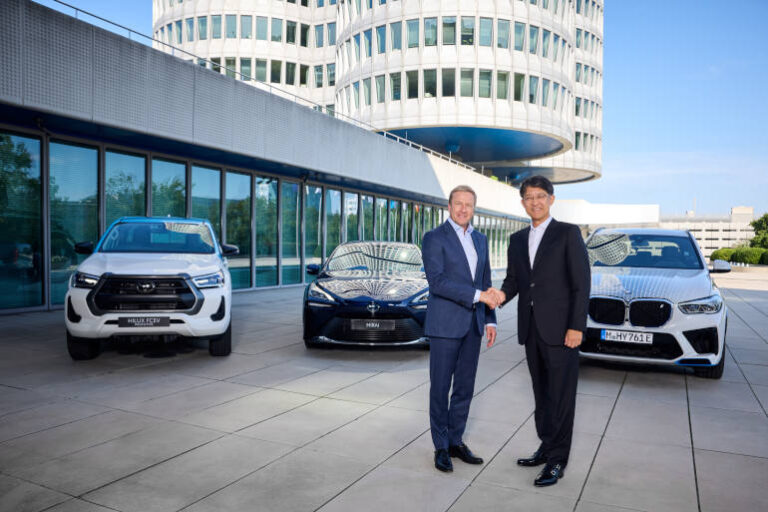Toyota Motor Corporation (Toyota) and the BMW Group (BMW) signed an agreement to strengthen collaboration in the hydrogen sector, with a view to creating a hydrogen society and achieving overall carbon neutrality. Both companies will work together on the development of fuel cells system and the improvement of infrastructure.
The two companies signed an agreement in December 2011 to establish a mid-long-term cooperative relationship in environmental technology, and have jointly advanced the development of environmental technologies, including fuel cells and sports cars, for over a decade. Sharing a common vision of “realizing a hydrogen society,” the two companies will continue to accelerate technological innovation in fuel cell systems.
The two companies will provide a wider range of options to customers by equipping more passenger cars with fuel cell systems.
Toyota and BMW are collaborating on the development of a third-generation fuel cell system, which will be installed in both companies’ models to provide customers with a broader range of fuel cell electric vehicles (FCEV). As a first step, BMW plans to launch its first mass-produced FCEV in 2028.
Both companies will also work to create synergies through collaboration in development and procurement as well as drive down costs by amalgamating powertrain units to expand commercial and passenger vehicle demand. By making FCEV a more accessible option, the partnership will contribute to the creation of a hydrogen society.
Establishing sustainable hydrogen supply networks
Both companies believe that working with like-minded partners is essential for realizing a hydrogen society. Given the need to create clusters of demand for hydrogen in the early stages of popularisation, Toyota and BMW will encourage sustainable hydrogen supply by creating demand and working closely with hydrogen-producing companies as well as distribution and refueling facilities to ensure a stable hydrogen supply and reduce costs.






